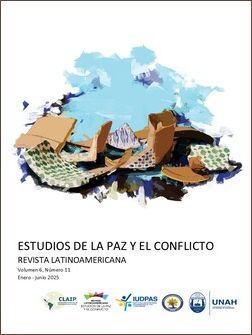Games and Culture os Peace: teaching strategies for Global Citizenship Education
DOI:
https://doi.org/10.5377/rlpc.v6i11.18956Keywords:
Culture of Peace, digital games, education, global citizenship, teaching strategiesAbstract
This study explores how digital games can be used as teaching strategies to promote a Culture of Peace and Global Citizenship Education. Using a qualitative approach based on a literature review and systematic review, with the Methodi Ordinatio, the study analyzes the main academic discussions on the subject. The results indicate that digital games provide immersive experiences that raise awareness of global issues, encouraging critical thinking, empathy, and social engagement. Examples such as "PeaceMaker" and exergames demonstrate how these tools can simulate conflict scenarios, promote cultural interactions, and strengthen problem-solving skills. It is concluded that when designed with cultural sensitivity and aligned with the principles of Peace Education, digital games become powerful allies in the educational process, promoting active and engaging learning. Implementing game-based educational strategies can enrich the formation of global citizens committed to building a more just and peaceful society.
Downloads
440
HTML (Português (Brasil)) 42
XML (Português (Brasil)) 18
EPUB (Português (Brasil)) 63
Downloads
Published
How to Cite
Issue
Section
License
Copyright (c) 2024 Latin American Journal of Peace and Conflict Studies

This work is licensed under a Creative Commons Attribution 4.0 International License.
The journal's contents are published under a Creative Commons Attribution 4.0 license (CC BY 4.0). This license allows third parties to share (copy and redistribute the material in any medium or format) and adapt (remix, transform and create from the material for any purpose, including commercial), as long as the authorship and first publication in this journal (Revista Latinoamericana Estudios de la Paz y el Conflicto, Universidad Nacional Autónoma de Honduras - Consejo Latinoamericano de Investigación para la Paz, DOI of the work) is acknowledged, a link to the license is provided and it is indicated if changes have been made to the original. The terms of the license are available online at http://creativecommons.org.




